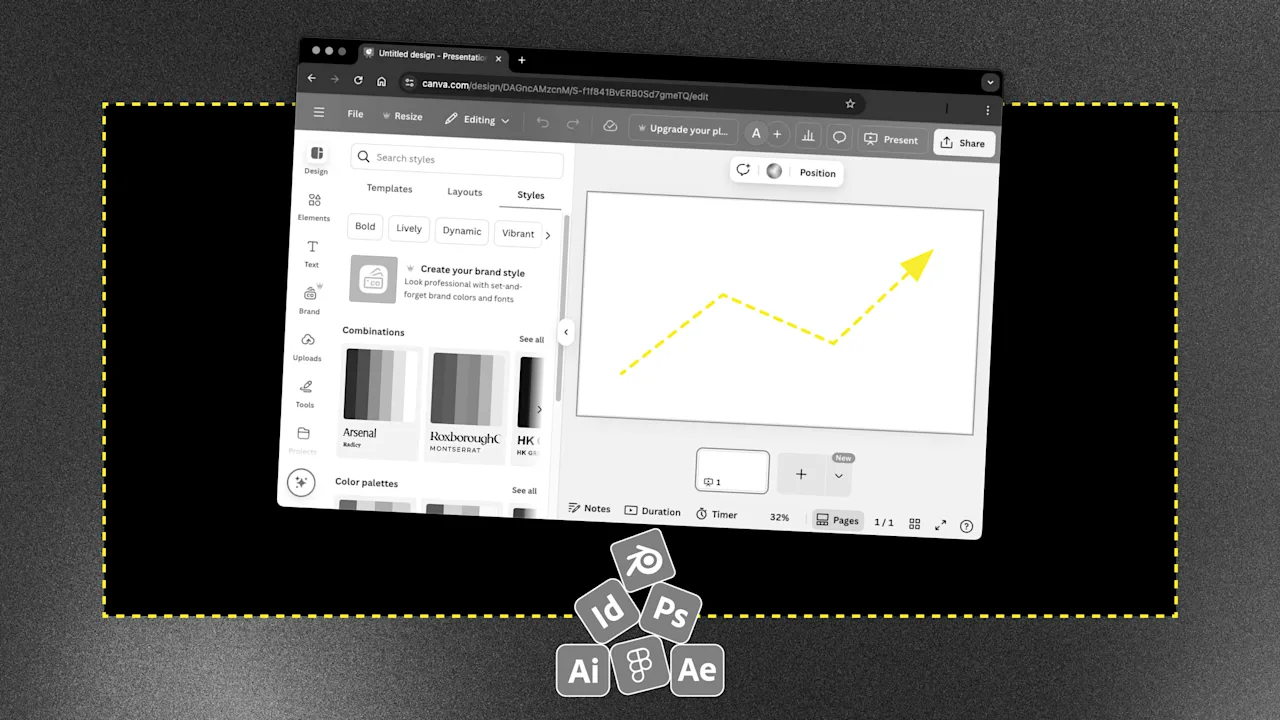After nearly four decades on Wall Street and over 15 years mentoring students and young adults, I’ve witnessed countless young professionals struggle with their job searches—not because they lack talent, but because they’re trapped in counterproductive habits that sabotage their success before they even begin. The job market has never been more competitive. With AI tools and vast information resources now available to every applicant, the baseline for what constitutes a “good” application has skyrocketed. Today’s job seekers have access to sophisticated résumé optimization tools, interview prep platforms, and industry insights that previous generations could never have imagined. And that means that simply having a polished resume or knowing basic company facts no longer differentiates you from the competition. A saturated job market The COVID-19 pandemic intensified this competition exponentially. Economic disruptions created a massive pool of highly competent applicants—seasoned professionals who were laid off, recent graduates whose traditional entry points disappeared, and career changers seeking more stable industries—all competing for fewer available positions. What we’re witnessing is an unprecedented bottleneck, where exceptional candidates are struggling to get through recruiting filters just because the volume of qualified applicants has overwhelmed traditional hiring processes. This saturation means that even talented individuals with strong credentials are facing rejection after rejection, not due to inadequacy, but due to sheer numbers. Employers who once received dozens of applications for a position now receive hundreds, forcing them to rely on increasingly narrow filtering criteria that can eliminate excellent candidates for arbitrary reasons. In this new landscape, it’s the candidates who go above and beyond—who demonstrate genuine initiative, build real relationships, and create tangible value—who separate themselves from the pack. The tools are available to everyone, but it’s how strategically and creatively you use them that determines your success. The reality is that most new job seekers are their own worst enemies, repeating the same ineffective strategies that virtually guarantee disappointment. If you’re serious about launching your career, it’s time to break these five destructive habits immediately. Stop the Spray-and-Pray Approach I see this mistake constantly: talented graduates treating job applications like a numbers game, firing off identical résumés to every posting they find. During my years at one of the largest banks in the United States, I reviewed countless résumés. The generic submissions were easy to spot and equally easy to dismiss. Employers aren’t looking for someone who can fill any role—they want someone who genuinely understands (and is passionate about) their specific position. Every application should tell a story about why you and this particular company are a perfect match. Research the organization, understand their challenges, and demonstrate how your skills address their specific needs. Yes, this takes more time—but would you rather send 50 thoughtless applications that get ignored, or 10 targeted ones that actually generate interviews? Embrace LinkedIn as Your Career Command Center I’m amazed by how many job seekers still treat LinkedIn as an afterthought. In today’s digital world, your LinkedIn profile is often your first chance to make an impression. Worse yet, many young professionals create a profile and then abandon it, missing countless opportunities for meaningful connections. Your LinkedIn presence should be as polished and strategic as your résumé. More importantly, it should be active. Share insights about your industry, comment thoughtfully on posts from professionals you admire, and regularly update your network on your career journey. We encourage young adults to view LinkedIn as a relationship-building platform, not just a digital résumé. The connections you make today become the foundation for opportunities in the future. Many of our most successful clients have landed positions through LinkedIn relationships they cultivated months before they even began their formal job search. Abandon the Perfect Role Fantasy One of the most career-limiting beliefs I encounter is the idea that you should wait for the perfect opportunity. Young professionals often turn down roles that don’t match their exact vision, convinced that holding out will yield something better. This perfectionist mindset ignores a fundamental truth: careers are built through progression. Some of the most successful individuals I’ve mentored started in positions that seemed unrelated to their ultimate goals but provided invaluable experience and connections. Early in your career, prioritize learning and growth over title and salary. A role with exceptional mentorship, challenging projects, or exposure to senior leadership can
After nearly four decades on Wall Street and over 15 years mentoring students and young adults, I’ve witnessed countless young professionals struggle with their job searches—not because they lack talent, but because they’re trapped in counterproductive habits that sabotage their success before they even begin.
The job market has never been more competitive. With AI tools and vast information resources now available to every applicant, the baseline for what constitutes a “good” application has skyrocketed. Today’s job seekers have access to sophisticated résumé optimization tools, interview prep platforms, and industry insights that previous generations could never have imagined. And that means that simply having a polished resume or knowing basic company facts no longer differentiates you from the competition.
A saturated job market
The COVID-19 pandemic intensified this competition exponentially. Economic disruptions created a massive pool of highly competent applicants—seasoned professionals who were laid off, recent graduates whose traditional entry points disappeared, and career changers seeking more stable industries—all competing for fewer available positions. What we’re witnessing is an unprecedented bottleneck, where exceptional candidates are struggling to get through recruiting filters just because the volume of qualified applicants has overwhelmed traditional hiring processes.
This saturation means that even talented individuals with strong credentials are facing rejection after rejection, not due to inadequacy, but due to sheer numbers. Employers who once received dozens of applications for a position now receive hundreds, forcing them to rely on increasingly narrow filtering criteria that can eliminate excellent candidates for arbitrary reasons.
In this new landscape, it’s the candidates who go above and beyond—who demonstrate genuine initiative, build real relationships, and create tangible value—who separate themselves from the pack. The tools are available to everyone, but it’s how strategically and creatively you use them that determines your success.
The reality is that most new job seekers are their own worst enemies, repeating the same ineffective strategies that virtually guarantee disappointment. If you’re serious about launching your career, it’s time to break these five destructive habits immediately.
Stop the Spray-and-Pray Approach
I see this mistake constantly: talented graduates treating job applications like a numbers game, firing off identical résumés to every posting they find.
During my years at one of the largest banks in the United States, I reviewed countless résumés. The generic submissions were easy to spot and equally easy to dismiss. Employers aren’t looking for someone who can fill any role—they want someone who genuinely understands (and is passionate about) their specific position.
Every application should tell a story about why you and this particular company are a perfect match. Research the organization, understand their challenges, and demonstrate how your skills address their specific needs. Yes, this takes more time—but would you rather send 50 thoughtless applications that get ignored, or 10 targeted ones that actually generate interviews?
Embrace LinkedIn as Your Career Command Center
I’m amazed by how many job seekers still treat LinkedIn as an afterthought. In today’s digital world, your LinkedIn profile is often your first chance to make an impression. Worse yet, many young professionals create a profile and then abandon it, missing countless opportunities for meaningful connections.
Your LinkedIn presence should be as polished and strategic as your résumé. More importantly, it should be active. Share insights about your industry, comment thoughtfully on posts from professionals you admire, and regularly update your network on your career journey.
We encourage young adults to view LinkedIn as a relationship-building platform, not just a digital résumé. The connections you make today become the foundation for opportunities in the future. Many of our most successful clients have landed positions through LinkedIn relationships they cultivated months before they even began their formal job search.
Abandon the Perfect Role Fantasy
One of the most career-limiting beliefs I encounter is the idea that you should wait for the perfect opportunity. Young professionals often turn down roles that don’t match their exact vision, convinced that holding out will yield something better.
This perfectionist mindset ignores a fundamental truth: careers are built through progression. Some of the most successful individuals I’ve mentored started in positions that seemed unrelated to their ultimate goals but provided invaluable experience and connections.
Early in your career, prioritize learning and growth over title and salary. A role with exceptional mentorship, challenging projects, or exposure to senior leadership can be far more valuable than a prestigious position where you’ll be isolated or underutilized. The goal is forward momentum, not immediate arrival at your destination.
I often tell my mentees that your first job is rarely your last job, but it’s always your launching pad. Choose roles that accelerate your trajectory, even if they don’t perfectly align with your original vision.
Master the Art of Strategic Follow-Up
The job search doesn’t end when you walk out of the interview room: that’s when the real work begins. Yet countless candidates don’t take full advantage of promising opportunities by failing to follow up appropriately.
A thoughtful follow-up message accomplishes several critical objectives: it demonstrates your genuine interest, reinforces key points from your conversation, and keeps you visible during the decision-making process. More importantly, it shows that you understand professional norms and can manage relationships effectively.
Your follow-up should be personalized, referencing specific moments from your conversation and reiterating how you can contribute to their team’s success. This isn’t about being pushy—it’s about being professional and maintaining momentum.
I’ve seen talented candidates lose opportunities to less-qualified competitors simply because they assumed their interview performance would speak for itself. In a competitive market, every advantage matters, and strategic follow-up can be the difference between getting the offer or being forgotten
Stop Waiting Until Your Senior Year to Think About Career Strategy
One of the most limiting mistakes I see is students who coast through their first few years of college without any career planning, suddenly panicking during junior or senior year when they realize competitive roles require years of preparation.
Today’s job market rewards those who think strategically early. The most coveted positions, whether in finance, consulting, technology, or other competitive fields, increasingly expect candidates to have meaningful internship experience, relevant projects, and established industry connections. Students who wait until their final years find themselves competing against peers who’ve been building their credentials since freshman year.
But let me be clear: starting later doesn’t doom your prospects. I’ve mentored countless students who discovered their career direction during their junior or senior years and still achieved remarkable success. The key is understanding that you’ll need to accelerate your efforts and be more strategic about your approach.
The real mistake isn’t starting late; it’s continuing to delay action once you recognize the importance of career planning. Whether you’re a freshman or a senior, the best time to start building your professional foundation is right now.
The Path Forward
Throughout my career mentoring young professionals, I’ve watched talented individuals gain access to opportunities they never thought possible by simply approaching their job search with the same intelligence and intention they bring to other aspects of their lives.
Remember, your job search can be a demonstration of your professional capabilities. Employers are evaluating not just what you’ve accomplished, but how you approach challenges, manage relationships, and execute strategies.
The job market may be competitive, but it’s not impenetrable. With the right approach, persistence, and strategic thinking, you can transform your job search from a source of frustration into a launching pad for the career you truly want.














Leave a comment